How the Athenians (and Athens) Defied My Expectations
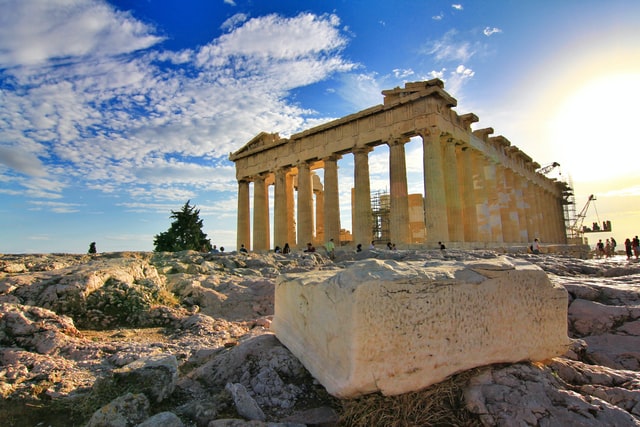
As my plane’s captain announced our final descent into Athens, I looked out my window at the looming metropolis and swallowed my trepidation. My trip to Greece had been a long time in making. From a wild, off-in-the-distance type fantasy to a reality that, over time, slowly came to fruition.
My final destination would be Santorini. The beautiful white-and-blue domed island that has captured the imaginations of people around the world. But first, I planned to spend a few days in Athens. I looked forward to exploring some of the Western world’s most important archaeological sites such as the Parthenon and the ancient Olympic stadium.
I had been regaled with tales from family and friends who had told me how dangerous Athens was (from the street demonstrations to the large population of pickpockets), how rude Athenians were, how dirty the city was, and so on.
As my plane made a smooth runway landing, I became increasingly nervous. Prior to leaving, I had been regaled with tales from family and friends who had told me how dangerous Athens was (from the street demonstrations to the large population of pickpockets), how rude Athenians were, how dirty the city was, and so on. They advised me to skip Athens. They told me to make my transit in the international airport, and pick up a connecting flight straight to Santorini.
I’m so glad I didn’t listen to them.
It’s not often I’m taken completely unawares by a people, but the Athenians were nothing like what I expected. Looking back on my experience, I don’t know how Athenians got the reputation of being rude. They were some of the most helpful, generous, and kind people I had ever met on my travels. I was treated with the utmost courtesy by everyone from cabbies to passers-by, and many went the extra mile to help me with anything I needed.
I accidentally gave the wrong address to a cabby and he ended up spending an extra ten minutes navigating the difficult, hilly streets of Piraeus, Athens’s hilly neighboring port city. He charged me less than what the trip should have cost and even handed me his business card afterwards, offering to chauffeur me elsewhere in the city should I need anything.
I loved Athens so much that, should I ever be afforded the opportunity to live and work there, I would take the position
When I asked the receptionist of our small boutique hotel for a restaurant recommendation, he personally walked me to a local Greek taverna. I ended up spending the evening there with merry locals, toasting to our collective good health and happiness over glasses of local ouzo and vinsanto.
I loved Athens so much that, should I ever be afforded the opportunity to live and work there, I would take the position. I’d learn Greek, and never look back.
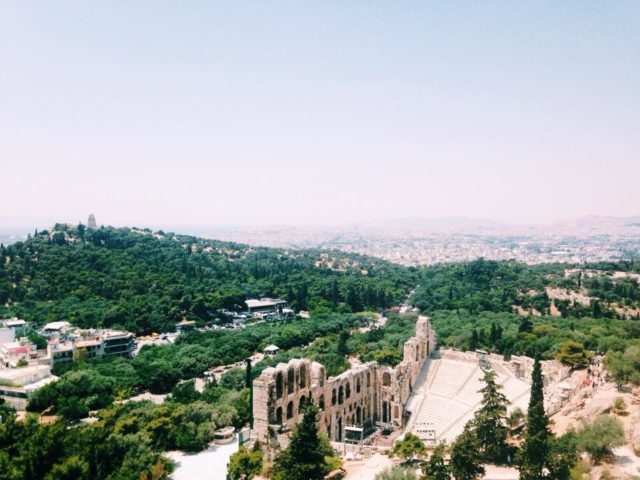
The Athenians were paradoxical in every sort of way. Consider the state of the Greek economy. In all of Greece, Athens is the one place that is probably hurting the most, being the financial capital of the Hellenic nation. The Greeks are obviously a proud people. Just ask them about their culture and you can see their chests visibly puff in pride. Yet they are unashamed of admitting their economy is in shambles.
They maintain their national pride in a way that wears well on them. Though weak, they are exceptionally strong. While in a time where they continuously feel the pinch of the European Union’s austerity net tightening around them (just ask any Athenian about the massive percentages they pay on their taxes), they remain firm on petitioning the British Museum for their priceless Elgin Marbles back. They don’t admit defeat. They don’t beg for charity. In fact, they are proud, amazing people.
They don’t expect you to know any words in their own language– not even the word hello.
Or examine the state of their language. Athenians (and other Greeks in most well traveled tourist areas) speak better English than some native-born speakers. They don’t expect you to know any words in their own language– not even the word hello (it’s yasas, by the way), which is a trait they do not share with Parisians, who hold much higher expectations. But this doesn’t mean their language is dying, nor does this mean they aren’t proud of it.
My cab driver from the Athens airport to my hotel in the Plaka (the Acropolis district) spent the 45 minutes in transit explaining all of the nuances and differences between Greek and similar languages (such as Turkish, Latin, etc.), and, essentially, came to the conclusion that ancient Greek (of which modern Greek is derivative) is the mother of the Indo-European family (whether that’s true I know not, however, his enthusiasm in the subject keeps me hopeful that it is).
Just like the ancient Athenians facing the Persian fleet prior to the Battle of Marathon, today’s Greeks remain with an unyielding optimism that, although bad times do exist, they don’t last.
Yet, paradoxically, most young Greek people speak English to some extent, listen to American top 100 music, play Nintendo video games, and watch Hollywood blockbusters, all without Greek dubs or subtitles. Rather than oil and water, the Greek and ever-present English language blend well in their society.
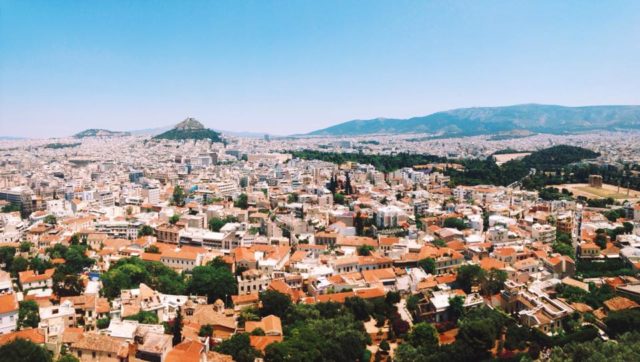
How the Athenians (and Athens) Defied My Expectations
Consider the reputations of Athens’s safety and that of Athenians (and Greeks in general, I suppose). Although I cannot attest to the state of other Greek regions, Athens is undoubtedly one of the safest places in Europe. The metro is calm and orderly, pleasantly devoid of the beggars and hawkers that populate the London Underground and the Paris Metro.
While pickpockets are a present threat as they are elsewhere in Europe, there seems to be a great deal less in Athens than, say, Paris. Protests and strikes don’t affect tourism. I found myself enjoying the historical sites rather than concerning myself over the state of my bag, and I found that comforting and pleasant.
What I saw was a city of hopeful people, who, although currently suffering through a bad bit of economic luck.
Athenians were characterized to me as grouchy, American-hating sorts, as evidenced by the lengthy testimonials found online and recounted to me via friends. Yet the Athenians I met were kind and enthusiastic about sharing their country. Here I am sure to be met with some skepticism from readers– but it’s true.
What I saw was a city of hopeful people, who, although currently suffering through a bad bit of economic luck, remain eternally hopeful for a recovery. Just like the ancient Athenians facing the Persian fleet prior to the Battle of Marathon, today’s Greeks remain with an unyielding optimism that, although bad times do exist, they don’t last.
How the Athenians (and Athens) Defied My Expectations.
Related Reading
10 Tips for Unforgettable Travel to Greece
Have you traveled to Athens? What were your impressions? Email us at [email protected] to share your experience and advice with the Pink Pangea community. We can’t wait to hear from you!
How the Athenians (and Athens) Defied My Expectations photo credits: Emma Liu by Unsplash.


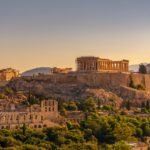
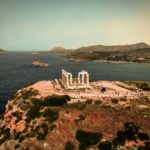





I’m so glad I came across this article! I’ll be traveling to Athens in October and meeting up with a tour group, but will have some solo time in the city before and after the tour. It’s great to hear that you had such a positive experience.
Hi JaiAlysa,
So glad you enjoyed this article! Athens is such a lovely city, make the most of it! I’d definitely say you should feel free to walk around and check out all of the amazing sites, as well as sample the delicious food (gyros and tzatziki dip are among my favorites). Have a wonderful, wonderful time.
Best,
Sophia